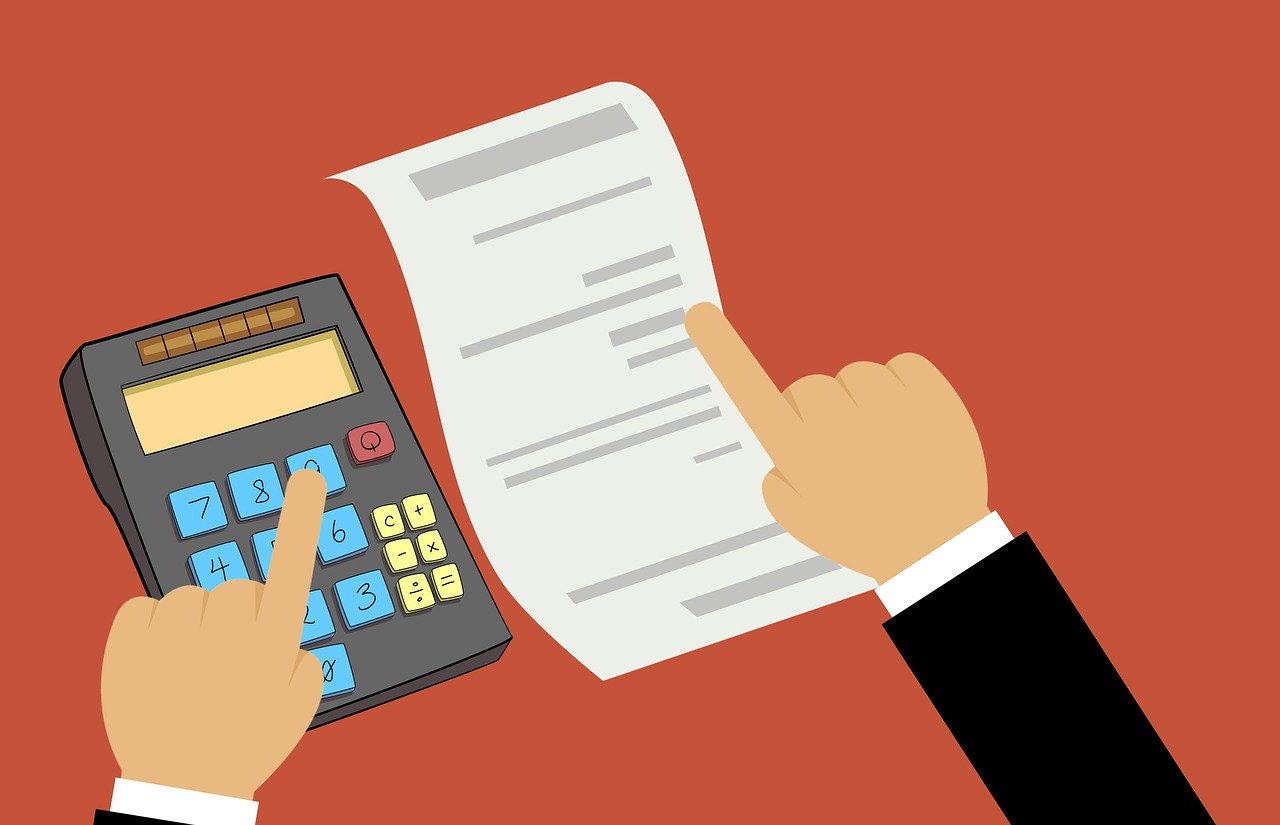Decisions, decisions – we all face them when it comes to money management. It’s a dilemma that haunts us all at some point: should you pay off your debt or save your hard-earned cash first? It’s a question that can leave you feeling perplexed, unsure of the best course of action. With the lure of financial freedom on one hand and the need for a safety net on the other, it’s time to weigh the pros and cons, and figure out the best strategy for your unique financial situation. So, let’s explore the age-old question: should you pay off debt or save money first?
Factors to Consider
When deciding whether to pay off debt or save money first, there are several important factors to consider. These factors can help you make an informed decision that is personalized to your financial situation and goals.
Interest Rates
One of the crucial factors to consider is the interest rates on your debt and the potential returns on your savings. High-interest debt, such as credit card debt, can quickly accumulate and become a significant financial burden. In this case, it may be wise to prioritize paying off high-interest debt first to save on interest payments. On the other hand, if you have low-interest debt, such as a mortgage or student loans, it might make more sense to focus on saving money instead.
Debt Amount
The amount of debt you have is another crucial consideration. If you have a substantial amount of debt, it may be challenging to manage your finances effectively and save money at the same time. In this case, it might be beneficial to prioritize debt repayment to reduce financial stress and improve your overall financial well-being. Conversely, if you have manageable debt, you may have more flexibility to save money while still repaying your debt.
Emergency Fund
Having an emergency fund is essential for financial stability. Unexpected expenses, such as medical bills or car repairs, can arise at any time, and having a safety net can prevent you from relying on credit cards or taking on more debt. When deciding whether to pay off debt or save money first, it is crucial to consider building an emergency fund. Depending on your financial situation, it may be wise to allocate some of your disposable income towards both debt repayment and emergency savings simultaneously.
Future Financial Goals
Considering your future financial goals is another vital factor when deciding whether to prioritize debt repayment or saving money. Do you have aspirations of homeownership, retirement savings, or funding education for yourself or your children? These goals require long-term financial planning, and it is crucial to consider how debt repayment and saving money can align with these goals. Finding a balance between debt repayment and saving for future goals is crucial to ensure you are making progress in all areas of your financial life.
Importance of Debt Repayment
Paying off debt should be a priority for several reasons. It not only helps improve your financial well-being but also provides peace of mind and sets you on a path towards financial freedom.
Reduce Financial Stress
Carrying debt can lead to significant financial stress. Whether it’s credit card debt, student loans, or other forms of debt, the monthly payments and interest charges can add up quickly and become overwhelming. By prioritizing debt repayment, you can start reducing that financial stress and regain control over your finances. As you pay off your debts, you will experience a sense of relief and freedom, knowing that you are one step closer to being debt-free.
Improve Credit Score
Your credit score is an essential factor in determining your financial health. By paying off debt, you can improve your credit score over time. A higher credit score can open up opportunities for lower interest rates on future loans, better terms for credit cards, and even potential employment opportunities. In contrast, carrying high levels of debt can negatively impact your credit score and limit your financial options. Prioritizing debt repayment can help you build a strong credit history and secure a solid financial foundation for the future.
Save on Interest Payments
Debt comes with interest charges, which means you are essentially paying extra money for the privilege of borrowing. By prioritizing debt repayment, particularly high-interest debt, you can save a significant amount of money on interest payments. This saved money can be redirected towards building your savings or achieving other financial goals. By being proactive in paying off debt, you are taking control of your finances and working towards a brighter financial future.

Benefits of Saving Money
While debt repayment is crucial, saving money is equally important. Saving money provides you with financial security and opens up opportunities for future investments and unexpected expenses.
Financial Security
Having savings provides a sense of financial security and peace of mind. It allows you to cover unexpected expenses or emergencies without going into debt or depleting your resources. Building an emergency fund, as mentioned earlier, is an essential aspect of saving money and ensures that you have a safety net for unexpected situations.
Opportunity for Investments
Saving money also provides opportunities for investments. Investing in stocks, bonds, or real estate can help grow your wealth over time. By saving money and investing wisely, you can potentially increase your net worth and achieve your long-term financial goals, such as retirement or purchasing a home. Saving money allows you to take advantage of opportunities for growth and maximize your financial potential.
Emergency Preparedness
Life is filled with uncertainty, and unforeseen circumstances can disrupt your financial stability. By saving money, you are preparing yourself for unexpected events, such as job loss, medical emergencies, or natural disasters. Having savings in place gives you a financial cushion and the ability to navigate through challenging times without relying on credit cards or accumulating more debt.
Common Approaches
When it comes to managing debt and savings, several common approaches can help guide your decision-making process.
Snowball Method
The snowball method is a debt repayment strategy where you focus on paying off your smallest debts first while making minimum payments on your other debts. As you pay off each debt, you roll the amount you were paying towards the next smallest debt until all your debts are paid off. This method is ideal for individuals who find motivation in quick wins and enjoy the psychological boost of clearing smaller debts.
Avalanche Method
The avalanche method focuses on paying off debts with the highest interest rates first. By prioritizing high-interest debt, you can save money on interest payments and pay off your overall debt more efficiently. This method is suitable for individuals who are motivated by long-term savings and want to take a strategic approach to debt repayment.
Debt Consolidation
Debt consolidation involves combining multiple debts into a single loan with a lower interest rate. By consolidating your debts, you can simplify your repayment process and potentially save money on interest. However, it’s essential to carefully consider the terms and fees associated with debt consolidation before pursuing this option.

Finding a Balance
Finding a balance between debt repayment and saving money is key to achieving financial stability and meeting your goals. There are several strategies you can employ to find this balance.
Allocating Disposable Income
Take a close look at your disposable income and consider how much you can reasonably allocate towards debt repayment and saving money. It’s important to ensure that you are meeting your debt obligations while also saving enough to build an emergency fund and work towards your future financial goals.
Building an Emergency Fund Simultaneously
As mentioned earlier, building an emergency fund is crucial for financial security. Try to allocate a portion of your disposable income towards both debt repayment and emergency savings simultaneously. This ensures that you are not neglecting any area of your financial well-being.
Seeking Professional Advice
If you find it challenging to find a balance or make a decision between debt repayment and saving money, consider seeking professional advice. Financial advisors can provide valuable insights and help you create a personalized plan that aligns with your goals and financial situation. They can guide you on prioritizing debt repayment and saving strategies based on your unique circumstances.
Considering Interest Rates
When deciding whether to pay off debt or save money, interest rates play a crucial role. Understanding how interest rates impact your debt and potential investment returns can help you make an informed decision.
High Interest Debt First
If you have high-interest debt, such as credit card debt, it is generally wise to prioritize paying it off as soon as possible. Credit card interest rates can be extremely high, making it challenging to make significant progress on debt repayment if you are also trying to save money. By tackling high-interest debt first, you can save a significant amount of money on interest payments and expedite your journey towards becoming debt-free.
Comparing Debt versus Potential Investment Returns
If you have low-interest debt, such as a mortgage or student loans, it may be worth considering potential investment returns before deciding whether to prioritize debt repayment or saving money. In some cases, the returns on certain investments may be higher than the interest rates on your debts. It is essential to evaluate the potential returns, risks, and your financial goals before deciding how to allocate your resources effectively.

Debt Amount vs. Savings Goal
The amount of debt you have and your savings goals can influence your decision on whether to prioritize debt repayment or saving money. Evaluating the following factors can help guide your decision-making process.
Paying off Small Debts
If you have multiple small debts, such as credit card balances or personal loans, it may be beneficial to focus on paying them off first. Clearing these smaller debts can provide a sense of accomplishment and motivation to continue your debt repayment journey. Additionally, with fewer debts to manage, you can streamline your finances and have more financial flexibility to save money.
Saving for Short-Term Goals
If you have specific short-term savings goals, such as a down payment for a house or a vacation, you may need to save money concurrently with debt repayment. In these cases, finding a balance between saving and debt repayment becomes crucial. Consider allocating a portion of your disposable income towards both goals, ensuring that you are making progress in all areas.
Balancing Long-Term Debt Repayment and Saving
Long-term debts, such as mortgage or student loans, often require regular payments over an extended period. In these cases, it may be feasible to simultaneously save money while making scheduled debt payments. By finding a balance between debt repayment and saving, you can work towards long-term financial goals while still chipping away at your debt.
The Emergency Fund Factor
Building an emergency fund is a critical component of financial stability. Here are some key factors to consider when determining the right amount and how to balance it with debt repayment.
Importance of Emergency Savings
An emergency fund provides a safety net during unexpected financial challenges. It helps cover unexpected expenses, such as medical bills, car repairs, or temporary job loss, without resorting to credit cards or taking on more debt. Prioritizing emergency savings alongside debt repayment can protect you from further financial stress and setbacks.
Determining the Right Amount
The ideal amount for an emergency fund varies depending on individual circumstances. Financial experts generally recommend saving three to six months’ worth of living expenses. However, if you have a more stable job or additional sources of income, you may be comfortable with a smaller emergency fund. Assess your personal situation and consider factors such as your income stability, dependents, and monthly expenses when determining the right amount for your emergency fund.
Addressing High-interest Debt First
While building an emergency fund is crucial, it is generally recommended to address high-interest debt before focusing solely on saving money. Prioritizing high-interest debt repayment can save you money on interest payments and reduce financial stress in the long run. Use the snowball or avalanche method mentioned earlier to pay off your debts while simultaneously growing your emergency fund.

Accounting for Future Goals
In addition to debt repayment and saving for emergencies, it is essential to consider your future financial goals when making decisions about debt and savings.
Retirement Savings
Retirement planning is a crucial aspect of long-term financial stability. While it may seem overwhelming to save for retirement while also dealing with debt, it is important to start saving as early as possible. Take advantage of employer-sponsored retirement plans, such as 401(k)s or Individual Retirement Accounts (IRAs). By contributing consistently, even if it’s a small percentage of your income, you can benefit from the power of compounding and ensure a secure retirement.
Education Funds
If you have children or are planning to pursue further education yourself, saving for education expenses should be part of your financial plan. Explore tax-advantaged savings options, such as 529 plans or education savings accounts, to maximize your savings potential. By starting early and consistently contributing to these accounts, you can ease the burden of educational expenses and provide valuable opportunities for yourself or your children.
Homeownership Aspirations
If homeownership is one of your future goals, it’s essential to consider how debt repayment and saving money align with this objective. Saving for a down payment and maintaining a good credit score are crucial steps towards homeownership. By balancing debt repayment and saving, you can work towards becoming a homeowner while also maintaining a solid financial foundation.
Conclusion
Deciding whether to pay off debt or save money first is a personal decision that depends on various factors, including interest rates, debt amount, emergency fund, and future financial goals. By carefully evaluating these factors and finding a balance between debt repayment and saving, you can work towards both short-term and long-term financial success. Remember, there is no one-size-fits-all approach, and seeking professional advice can provide valuable insights tailored to your unique financial situation. Start by prioritizing debt repayment, building an emergency fund, and saving for your future goals while continually adapting your strategy to align with changing circumstances. With determination and sound financial planning, you can achieve both debt freedom and financial security.






